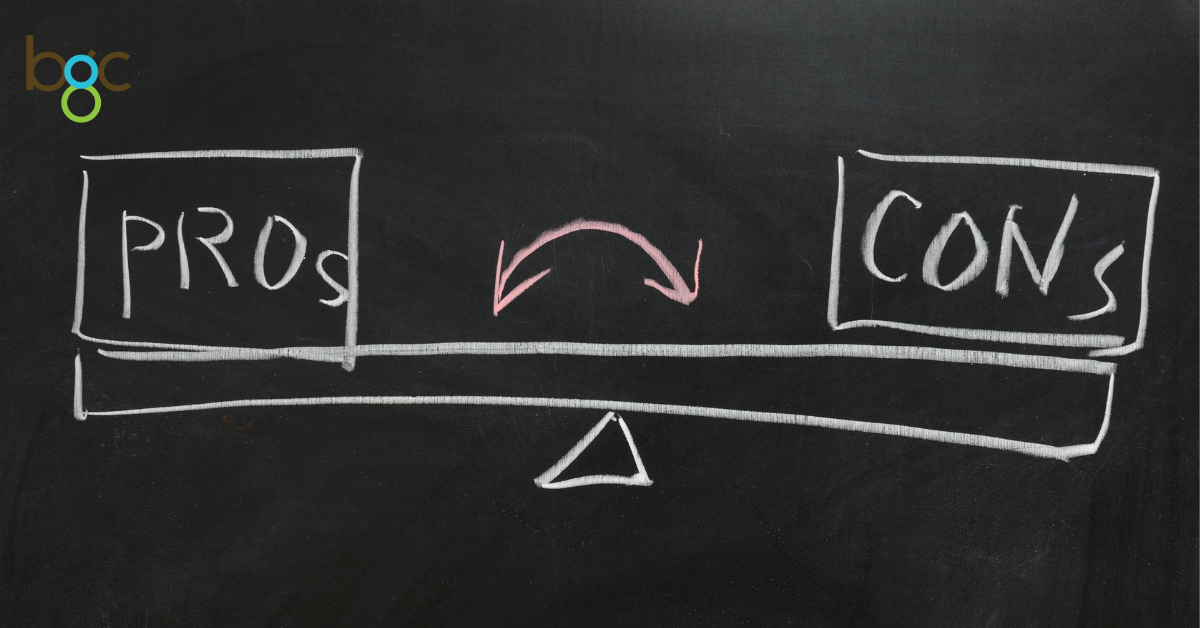Planning a mid-life career change can be a distant dream to some. Most of us idealise having a chance to finally live the life of our dreams. Yet hold back when it comes to switching careers because they’re not ready to take the leap just yet! This is understandable. Professionals spend years of their life perfecting their skills in order to be the very best. Often, the amount of money, time, and energy spent doing this is priceless. But there are many amongst us who’ve had success navigating their mid-life career change.
As an IT recruitment agency in Singapore, we believe that with proper planning, anyone can have success with a mid-life career switch. Which is why in this article, we’ll be listing the different pros and cons of a mid-life career switch. Ready to hear more? Let’s start!
A. Is A Mid-Life Career Change Necessary?

According to an article by the Harvard Business Review, a mid-life career change is necessary as life expectancy increases. These changes are usually driven by an individual’s personal values (e.g. an increase in pay, job burnout, boredom). Fortunately, the past decade has gifted us a lot more opportunities to jump into.
As such, whether or not a mid-life career change is necessary depends on you! This decision might not come naturally to some. If indecisiveness seems to be the case for you. You might want to discuss this with a career counsellor, supervisor, coach, therapist or even psychologist.
The process of self-discovery is crucial when it comes to a mid-life career change. However, despite its importance, this might not come naturally to some. Other than seeking help from a personal coach or career counsellor, personality tests are also a great way to discover and evaluate your potential.
B. What Should I Consider Before Making a Mid-Life Career Change?

Changing careers when you’ve accumulated enough life experience can be terrifying. But with careful consideration, it can be easier to navigate! Below are 4 things you should consider before making a mid-life career change:
1. Do I have enough savings?
Money is an important resource for each and everyone of us. Switching career can sometimes result in a momentary pause of your career. Which is why it’s important to save as much as you can before leaving your current position. How much you’ll need to have saved is totally up to you. But according to Forbes, one should have at least 6-9 months of their monthly expenses saved up before quitting their job.
2. Do I really want a career change?
If you’re unable to answer this question then perhaps it’s not the right time to switch jobs just yet! Some other questions to help determine whether you’re ready to ‘jump ship’ include:
Have you done your research? Or is this a leap of faith into the unknown?
Are you ready to start all over again?
Do you have the right skills and qualifications needed to switch careers?
Do you have a backup plan?
Don’t rush this self-interview and discovery process. The discovery process is especially important since it allows you to find out your hidden strengths and skills. Additionally, this process can also help clarify whether or not you’d like a career change or a change of environment, colleagues, people.
3. What skills do I have?
If you don’t have the skills, you might not be able to jump into the new career or industry that you’ve been eyeing. Of course, it’s never too late to pick up some new skills.
4. Have I done this job before?
This is perhaps the most important question to consider. Instead of idealising a career, it is always best to gain some experience in the industry before making your decision. This can prevent jobseekers from thinking that the “grass is greener on the other side”.
Keep in mind that every company, career, and industry will have its ups and downs. In fact, workplace politics are common in most companies. As Singaporeans, it’s easier for some of us to confuse burnout with boredom.
Additionally, the Employment act in Singapore states that an employee is not allowed to work more than 44 hours a week. However, with everyone working from home as well as unforeseen overtime, it is safe to say that individuals are working more than the stipulated amount set. Needless to say, this often results in job burnout.
Learn more about the different qualities one should consider before switching careers.
C. Pros and Cons of a Mid-Life Career Change in Singapore

Now that you have a better understanding regarding a mid-life career change. It’s time to talk about the pros and cons. That way, you’ll have a better understanding of a mid-life career change before ditching your old job.
Pros #1: There are a lot more tools for you to rely on!
The great thing about switching careers at a much later age is the amount of tools you’ll be able to bring with you. You have access to a larger network as well as transferable skills compared to a fresh graduate.
Cons #1: Salary cuts
Sometimes, starting over can result in a lower salary. But don’t fret! This is where your savings come in to help you tide over. Of course, this consequence will depend greatly on your chosen industry. Despite this, a bit of budgeting and financial planning can help you overcome issues related to a smaller pay cheque.
Pros #2: Fresh environment can lead to more benefits
A change of environment and scenery can reignite lost passion and fire. It’s also important to consider that too many people work in stressful environments. As such, a change of scenery can result in a less stressful situation. It would be a great, new change!
Cons #2: Entering a worse situation
Unless you’ve conducted an adequate amount of research, sometimes, a career change can lead one into a worse situation. Which is why, we’d always recommend individuals to research the company before entering the job — whether you’re a fresh graduate or an experienced worker.


